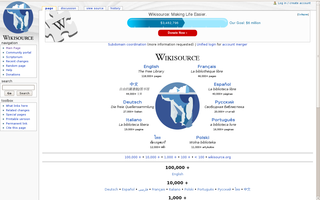Related Research Articles

Alphonse Daudet was a French novelist. He was the husband of Julia Daudet and father of Edmée Daudet, and writers Léon Daudet and Lucien Daudet.

Andrew Lang (1844–1912) was a Scottish poet, novelist, literary critic, and contributor to the field of anthropology. He is best known as a collector of folk and fairy tales. The Andrew Lang lectures at the University of St Andrews are named after him.

John Fiske was an American philosopher and historian.

Étienne Émile Marie Boutroux was an eminent 19th century French philosopher of science and religion, and an historian of philosophy. He was a firm opponent of materialism in science. He was a spiritual philosopher who defended the idea that religion and science are compatible at a time when the power of science was rising inexorably. His work is overshadowed in the English-speaking world by that of the more celebrated Henri Bergson. He was elected membership of the Academy of Moral and Political Sciences in 1898 and in 1912 to the Académie française.

The Rev. Archibald Henry Sayce, was a pioneer British Assyriologist and linguist, who held a chair as Professor of Assyriology at the University of Oxford from 1891 to 1919. He was a contributor to articles in his field, in the 9th, 10th and 11th editions of the Encyclopædia Britannica.

William Dwight Whitney was an American linguist, philologist, and lexicographer known for his work on Sanskrit grammar and Vedic philology as well as his influential view of language as a social institution. He was the first president of the American Philological Association and editor-in-chief of The Century Dictionary.
Anglo-Norman literature is literature composed in the Anglo-Norman language developed during the period 1066–1204 when the Duchy of Normandy and England were united in the Anglo-Norman realm.

Walter Hungerford, 1st Baron Hungerford KG was an English knight and landowner, from 1400 to 1414 Member of the House of Commons, of which he became Speaker, then was an Admiral and peer.
Charles Wright may refer to:
Raymond Weeks (1863–1954) was an American linguist and academic. He was Chair of Romance Languages at the University of Missouri from 1895 to 1908, and later taught at Columbia University in New York City.
Adolphe Cohn was a Franco-American educator, born in Paris. He was graduated "bachelier ès lettres" from the University of Paris in 1868, and studied law, historical criticism, and philology at various institutions of higher learning in Paris, receiving the degrees of LL.B. in 1873. A pupil of the École des Chartes, his thesis was called Vues sur l’histoire de l’organisation judiciaire en France du IXe au XIIIe siècle considérée au point de vue des juridictions extraordinaires and he got the diploma of "archiviste paléographe" in 1874. At the commencement of the Franco-Prussian War in 1870, he enlisted and served in the French army throughout the struggle.
Henrietta Christian Wright (1854–1899) was an American children's author who resided in East Brunswick Township, New Jersey. She was born in 1854 in Old Bridge in Middlesex County, New Jersey and died there in 1899 of tuberculosis. See her tombstone here.

The Early Birds of Aviation is an organization devoted to the history of early pilots. The organization was started in 1928 and accepted a membership of 598 pioneering aviators.
Barrett Wendell was an American academic known for a series of textbooks including English Composition, studies of Cotton Mather and William Shakespeare,A Literary History of America,The France of Today, and The Traditions of European Literature.
William Morton Payne was an American educator, literary critic and writer.
Charles Abdy Marcon was an English clergyman, Master of Marcon's Hall, a private hall of Oxford University, from 1891 to 1918, then from 1918 Vicar of Kennington.

Marshman Edward Wadsworth was an American geologist and educator. He served as the first president of Michigan Technological University and was State Geologist of Michigan from 1888 through 1893.

Thomas Sergeant Perry (1845–1928) was an American editor, academic, literary critic, literary translator, and literary historian. He was a lifelong friend and associate of Henry James and a member of the faculty at Harvard University.
Charles Conrad Wright was an American religious historian and scholar of American Unitarianism and congregational polity. He served on the faculty of Harvard Divinity School from 1954 to 1987 and continued to write for another decade. During his life, Wright was considered the authority on Unitarian church history and polity as well as the history of the Divinity School.
References
- ↑ "Wright, Charles Henry Conrad". Who's who among North American authors. 1921.
- 1 2 "Charles Henry Conrad Wright". Harvard College Class of 1891 Secretary's Report. pp. 261–262.
- 1 2 Wright Family Papers, 1826–2003, Massachusetts Historical Society
- ↑ Tilley, Arthur; Oelsner, Hermann (1913). "Review of A History of French Literature by C. H. Conrad Wright". The Modern Language Review. 8: 121–130.
